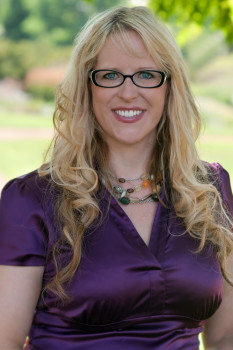
Women Advisors are Critical to Your Future
According to the 2013 Edelman Trust Barometer: Global Financial Services Industry by Edelman Insights released on April 9, 2013, we trust our government about as much as we trust our financial institutions. With the government shutdown in October 2013 the frustration across the US increased. Even oil giant ExxonMobil ranked higher than financial institutions in the reputation department. Most of the bad boys in the financial news are men (think Bernie Madoff), so this would lead one to believe that the industry needs more women financial advisors.
On May 8, 2013, Perishing LLC, a BNY Mellon company released a new study entitled “The 30% Solution: Growing Your Business by Winning and Keeping Women Advisors,” suggests that women advisors are critical to the future of financial planning. Women make up half of the U.S. population, yet female advisors remain underrepresented in the financial industry. So, why do people believe that women are ideally suited for the business of financial advising? Relationships.
I’m not saying you must have a female advisor. What I am saying is that you want a financial advisor that is great at listening and truly understands what you are looking for. This financial advisor should help you avoid mistakes. Money can be overwhelming, so here are some common retirement mistakes that you can work to avoid:
Underestimating your life expectancy.
A generation ago, it was probably safe to assume that men would live to approximately age 70, and women to perhaps 75. But advances in medical science have pushed those ages up at least fifteen to twenty years. Realistic financial planning should probably assume that at least one spouse will live to age 90 or beyond. To make sure your money lasts, you may need to annuitize your assets to create a sufficient income.
Are you thinking that you will be able to retire when you want? In financial planning for retirement, many workers plan on working into their 70’s or until illness, disability, or mere fatigue forces them to reconsider. If you plan on working past the normal retirement age, do not count on the extra money earned to pay for essential expenses. Sound financial planning for senior years would have you save a sufficient nest egg by age 65 in case health reasons prohibit you from working longer.
Neglecting to adequately factor in health care costs.
Failure to do this can be disastrous, especially if long-term care is needed. And don’t count on the government to pick up the bill for you either. Make certain that your health coverage is adequate and that you have a plan to cover other elder care needs. This is one of the most prevalent errors in financial planning, as it is estimated that half of the bankruptcy in the United States is caused by health failures and the accompanying costs.
Failure to monitor or control your distribution rate.
Your financial advisor should be able to run some basic calculations based on the size and allocation of your portfolio that show a safe rate of withdrawal. Generally, somewhere between two and three percent per year is a safe withdrawal rate, but this depends on your portfolio’s allocation between equity and fixed income investments. We have seen some financial planning disasters when people spend beyond this level.
Women are great listeners, great at building relationships and great at planning. The most important thing with investing is finding someone you like and someone that can help minimize your mistakes.
 Nicole is a registered principal with LPL Financial. For more information visit www.prosperwell.com. Securities offered through LPL Financial. Member FINRA/SIPC.
Nicole is a registered principal with LPL Financial. For more information visit www.prosperwell.com. Securities offered through LPL Financial. Member FINRA/SIPC.
Recommended
-
AI And Content – Where’s T...April 1st, 2024
-
Spring Sales Are Ready To Bloo...March 1st, 2024
-
Want Some Media Love?February 1st, 2024
-
Passion Leads To A Helpful, Co...January 10th, 2024
-
New Year – Fresh Start!January 1st, 2024















